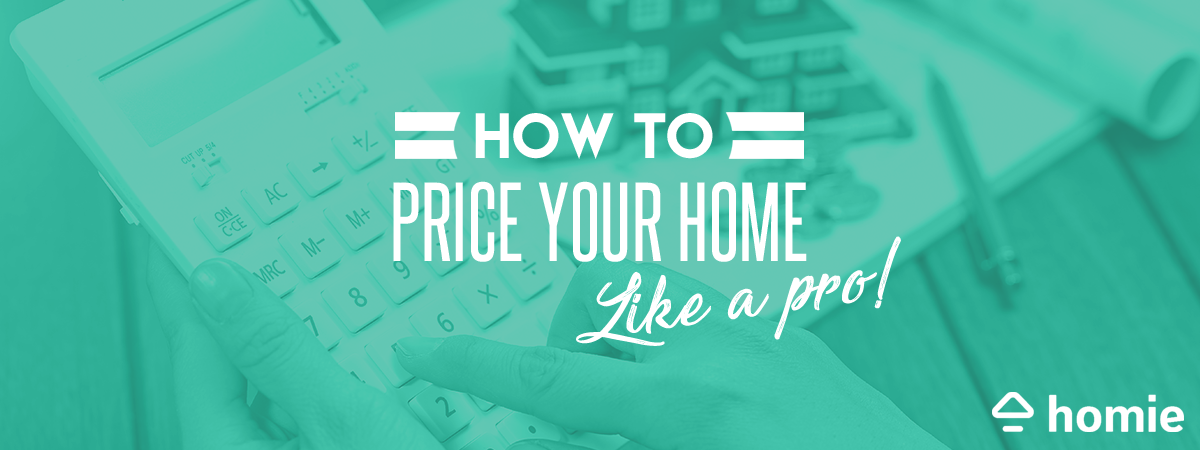
We’re about to let you in on a little secret. Come in close, we promise it will be worth it, especially if you’ve been in a constant state of panic on how to truly price your house.
So are you ready? The secret to selling your house as quickly as possible for the greatest cash possible is … to find the dollar value both you and your buyer are happy with. That’s it. Sorry. Kind of anticlimactic, really.
The truth is, there’s no big secret those slick real estate agents are keeping stashed away, concealed in a safe, written in code on a device which self-destructs in five seconds Tom Cruise-style. It boils down to doing your research, maintaining realistic expectations and putting in the hard work.
We know it sounds hard and time-consuming, but we promise, it can actually be kind of fun! Let’s take a closer look.
The Home Pricing Tightrope
We can’t emphasize this point enough. Finding the right price for your home requires compromise. Sure, you may fondly remember your dad and his bicycle shorts parading around the yard with a weed wacker, but your buyer isn’t wearing those rose-colored spectacles. They’re seeking a house they can eventually turn into a home, and for now they have no memories to build on.
Which brings us to the cardinal rule of pricing your home. It’s a balance. For better or worse, it’s a tightrope you and your buyer will need to walk together.
This balancing act also has big implications for how you set your price to begin with. Here’s a slightly scary statistic for you:
Interest in a home market listing trails off sharply after about three weeks. That’s not a lot of time! In a mere 21 days, your property listing transforms from new and fresh like 2014 Jennifer Lawrence to “Oh yeah. We saw that one. Next” 2018 Jennifer Lawrence.
That doesn’t give you a ton of time to capitalize on that initial surge of interest. But there’s one effective way to start your tightrope walk on the right footing. Drum roll please….
List Your Home Below Market
Gasp. We know. How dare we. But here’s what happens: Most buyers will have a Realtor doing a lot of research on comparable homes. An underpriced home will stick out like a lime, polka-dot chimney. You can bet your home will end up on your Realtor’s short-list of early recommendations, and with any luck, buyers will look at your opening price and experience that thrill we all know and recognize — the thrill of a bargain.
Bam. They’re intrigued. They want to see this amazing (and really quite reasonably priced) house. They even like the lime, polka-dot chimney! Right there, you’ve set out on the pricing tightrope on the right footing. With any luck, other buyers will see it too and you may end up on the receiving end of a bidding war, which is a very good war to be in if you’re the seller.
Price Drops Can Scare Buyers Away
It can certainly be tempting to start with a higher price. But if no one bites, at some point you’ll have to lower your price anyway. When the price drops on a home, it’s often perceived as undesirable, making your house essentially the Urkel of the block that no one wants to take to prom.
Realtors working with their buyers might even see the price drop and keep their buyers away, focusing instead on other opportunities.
Shameless plug fact #1: It takes Homie only 16 days to sell a home. On top of that, you can save the 6 percent Realtor commission ($18,000 on a $300,000 home), and add a new polka-dot chimney to your next new home.
Here endeth the lesson of the home pricing tightrope and the importance of reasonable expectations! Let’s turn now to an equally important truth nugget in getting a great price on your home: research.
Zig When They Zag (With Careful Research)
We’ve all had a bespectacled, chalk-throwing teacher inform us at some point in our lives that Knowledge is Power. And when you’re selling your home, it’s certainly a lesson to remember.
Information is going to be your best friend as you negotiate the selling price of your home, giving you answers to the questions your buyers will inevitably ask. In short, it lets you know just how much “give” you should yield to their “take.”
So, what information should you have at your fingertips?
Comparable Home Sales
It’s imperative (serious face) that you look at homes for sale in Phoenix or Salt Lake City that are similar to yours. This means equivalent bedrooms, square footage, year built, and style. The more detailed you can get, the better comp you’ll come up with for your home. This gives you a hard line that is simple yet powerful: you know your home’s value. But wait, there’s more!
As a reward for this dedication to data (ya nerd), you’ll also gain a useful insight into how long your home is likely to stay on the market. Staying within your comp range will increase your probability of selling the home within a similar number of days as other homes you’ve comp’d against.
Sales of Homes in the Same Neighborhood
Comparing your home to those all over town won’t do much good. You need to compare apples with apples (or whichever fruit you prefer). To do that properly, you’ll need an insight into what factors drive prices up and pull prices down. Major lines of separation such as freeways, train tracks, and rivers often create natural borders. There may simply be a perception that houses on side X of the freeway belong to the less desirable neighborhood, while those on side Y magically belong to the good part of town.
If you don’t have that information, go out and find it. Looking at HOA divisions is a great place to start. HOAs usually have similar homes, making comparing homes more practical. There are exceptions though. If a HOA neighborhood backs up into mountain foothills (and has great views) they’ll tend to have higher comps, so avoid the million dollar listing unless you can touch Camelback Mountain from your back porch.
Failing that, talk to people! Find a local expert, sit them down with a margarita or a spiked iced latte, and interrogate them if necessary. Avoid shining a bright desk lamp in their eyes though. Most people consider that rude.
Price Per Square Foot
Then there’s more practical information to gather. Square foot pricing can really simplify comps. There may be a larger home within a neighborhood that obviously costs more. But is it a good value? If the average square foot cost is $120 per square foot and the large home is $130 per, it isn’t too overpriced. On the other hand, if the larger home was $165 per, that could be a problem.
Sales Over the Last Three Months
Another good factoid to have up your sleeve is how “hot” the market is right now. Looking at sales over the last three months will give you a good idea on the trend. Are sales slowing, going flat, or increasing? If you’re about to list your home and sales are slowing, you might need to come down on your initial list price to get ahead of slowing sales.
Shameless plug fact #2: As a licensed real estate broker, Homie merges all this deliciously useful info into one, convenient Home Value Report. This report is your best friend in helping you zero in on pricing that hits the “sweet spot” for both buyer and seller.

When Selling Your Home, Avoid Your Inner Alec Baldwin
Thus far, we’ve looked at two very practical foundations for selling your home at the right price: balanced expectations and careful research. This final piece of the sales puzzle might seem a bit “feely touchy” by comparison, but it’s no less important. In fact it may be the “one piece to rule them all.” Such a nerd.
It’s nice to be nice. Or as grandma used to say, you catch more flies with honey.
While you can get caught up on all the activity that goes into selling a home in Phoenix, don’t forget that there’s another party involved. You want the best price. That’s understandable. But so does your counterpart. In a sense, you share a common goal: to close the deal and leave the situation a winner.
If you and the other party seem far off on price, don’t give up just yet! You can always counter by getting closer to their price, adding an incentive, or other tactics that can get both sides closer to a deal.
If they see you giving a little, they’re likely to give as well. The selling process can actually be fun, and you might even end up actively working together to build the greatest possible outcome for both parties. Awwww.
Pricing your home right and making a successful sale is always a journey. It takes balance, research, and a willingness to work with your buyer. Fortunately, you have excellent resources at your disposal! With Homie, you have a powerful licensed real estate broker right at your fingertips and for a fraction of the cost a traditional agent charges.
Give yourself the best chance of getting it right. Give Homie a try. You’ll save on both time and commissions.
